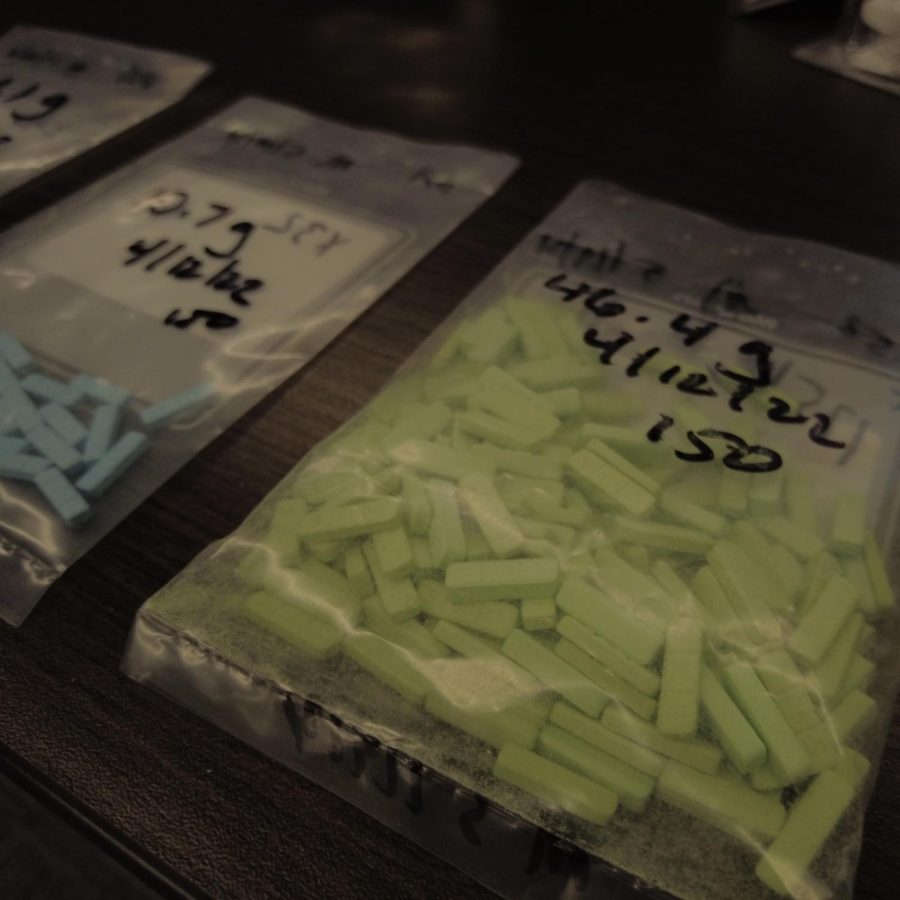In recent years, the fentanyl crisis in Linn County has worsened, with as many as two out of every five street-bought pills containing a lethal dose of the drug: just two milligrams. On April 12, the Albany Police Department hosted an event to educate the public about the effects of fentanyl on the body, what it can look like, and what to do if you witness an overdose or suspect someone you know is using counterfeit prescription drugs.
“It’s safe to assume that any pill you would buy or get from someone who is not a doctor could contain fentanyl,” Detective Joe Clausen of the Linn Interagency Narcotics Enforcement Team said.
Counterfeit pills can look like a number of things, including Xanax bars, M30 blue pills, and other prescription medications as pictured above. When bought off the street, these pills run an incredibly high risk of containing lethal doses of fentanyl. The APD and LINE Team will continue to give presentations at schools and organizations in Linn County to inform the public.
“We’re at the point where we’re going to need a lot more community education,” Clausen said to the crowd of approximately 50 attendees gathered in an APD meeting room.
Under Oregon’s “Good Samaritan Law,” any person in need of medical attention due to overdose will not be arrested or prosecuted for drug possession, frequenting a place where controlled substances are used or sold, parole or probation violation, or Oregon warrants for offenses other than new crime. Bystanders to an overdose or those who have overdosed themselves can call Oregon law enforcement for help without risk of arrest.
If you or someone you know is struggling with opioid addiction, reach out to the resources available in Linn County–including the Linn County Public Health Drug and Alcohol Department and Harmony Academy–or ask for a referral from your primary care provider. NARCAN, a temporary opioid receptor blocker that can buy enough time to get a person who has overdosed to a hospital, is available for free from Samaritan Treatment and Services.




